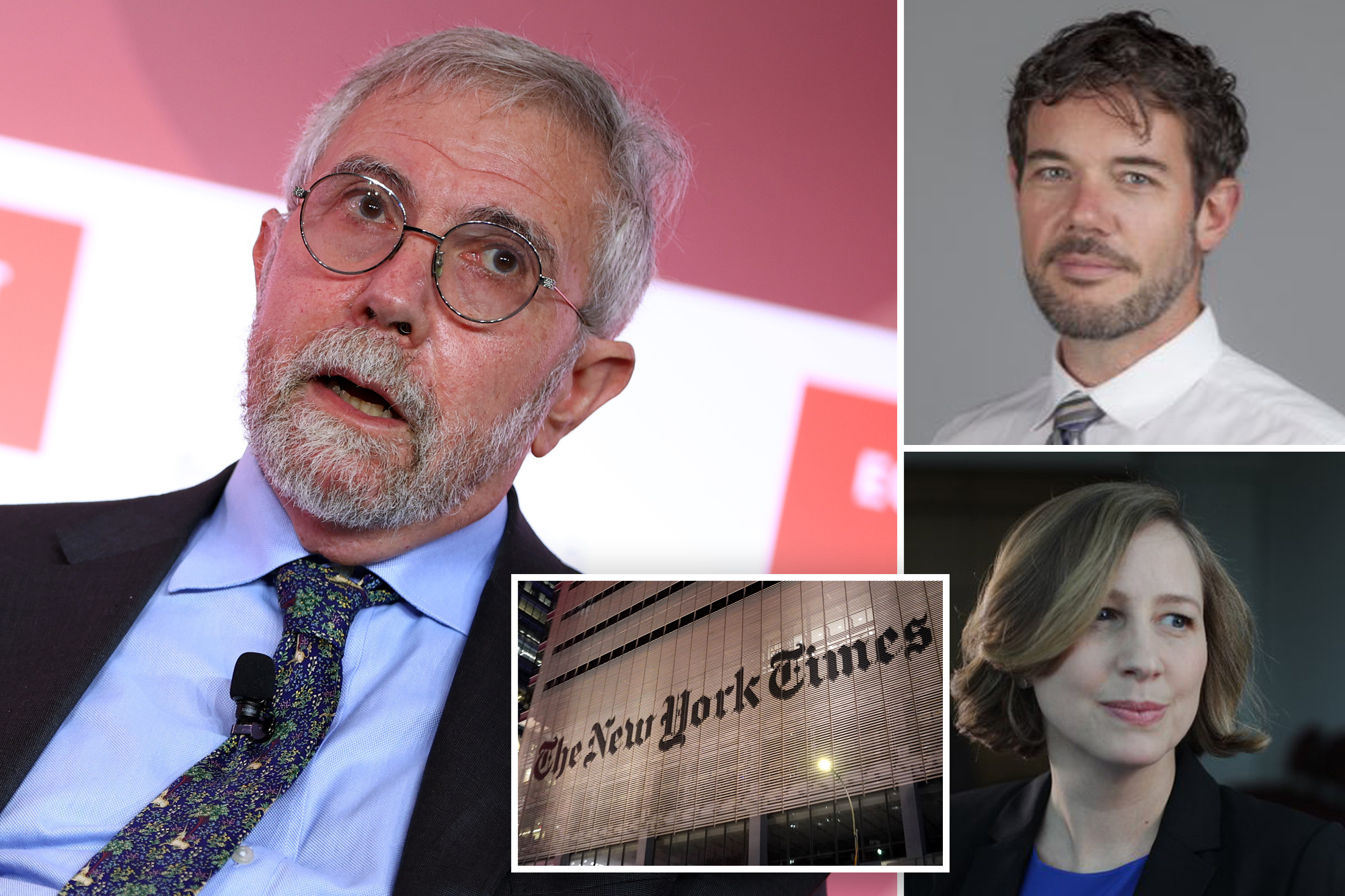
Paul Krugman, the Nobel Prize-winning economist and longtime columnist for the left-leaning New York Times, left The Gray Lady last month after more than two decades, accusing editors of effectively censoring his opinion pieces, canceling the paper his beloved and having “my life Hell”.
An entrenched Krugman, who was widely criticized for researching President Joe Biden’s economic policies despite rampant inflation, complained that Times editors were “exerting too heavy a hand in what came out under my name.”
Krugman told the Columbia Journalism Review that he “came close on Mondays and Thursdays (when his columns ran) with Dread” and that he “often spent the afternoon in a rage” after publication.
Krugman, who has gone on to launch his own independent newspaper on the substance platform, pointed the finger at Patrick Healy, who was his deputy opinion editor.
“Patrick often — not always — rewrites essential passages,” Krugman told CJR last week.
“I would then do a rewrite of his rewrite to restore the original sense, and I felt that I was putting more work—certainly more emotional energy—into repairing the damage from editing it than I did writing the original draft. “
Krugman admitted that while “nothing was published without my approval”, he was annoyed by the “back and forth” which “to my eye, both made my life hell and left my columns flat and colorless”.
The columnist said that Times opinion editors were not as lenient as they once were.
“I’ve always been very, very lightly edited in the column,” Krugman told CJR.
“And that stopped being the case.”
Krugman said “editing became extremely intrusive.”
“It was a lot of toning of my voice, a lot of toning of feeling, and a lot of pressure for what I considered the false equivalent.”
He accused Healy and his superiors of trying to “dictate the subject”.
The final straw for Krugman was when he was informed by Healy this past September that his workload — two columns a week and a weekly paper — would be reduced.
According to Krugman, Healy told him the paper was being cancelled.
“That was my ‘network’ moment,” Krugman said, quoting the character Howard Beale from the famous 1976 film: “”I’m mad as hell and I’m not going to take it anymore. “”
Healy’s boss, Opinion Times editor Kathleen Kingsbury, denied that Krugman’s newsletter was killed.
Kingsbury told CJR that it was “patent falsehood” that the Times wanted to leave with the paper, which stopped running in October.
According to Kingsbury, she emailed Krugman on Sept. 30 to urge him to stay on time, which would allow him to continue the paper even without guaranteeing it would be published weekly.
Kingsbury told CJR that Krugman was allowed the opportunity to “use [the newsletter] to weigh in when you and your editor agree it is necessary. “
But there was one condition: Krugman could keep the paper if he agreed to reduce the frequency of his column to once a week.
Krugman refused.
Healy denied any suggestion that he was censoring Krugman.
“He never called me or emailed me saying I was changing his meaning or censoring his views, and he never presented an objection to me that I overrode,” Healy told CJR.
Kingsbury told CJR that Times columnists have been more edited since she succeeded James Bennet as opinion editor in 2020.
Bennet resigned as Times Opinion Editor in June 2020 following backlash over the publication of a controversial op-ed by Sen. Tom Cotton (R-Ark.), which advocated the use of military force against protesters in the wake of the killing of George Floyd.
The op-ed sparked internal and external criticism, with many staffers arguing that it endangered black journalists, ultimately leading to Bennet’s departure.
After leaving the Times, Bennett criticized the paper for what he saw as a retreat from journalistic independence and open debate, arguing that it had become too responsive to criticism.
He claimed that his forced resignation reflected a broader shift at the time toward ideological conformity and a reluctance to publish controversial views.
Krugman claimed that he was being singled out and that his former colleagues on the Times Opinion page — including Thomas Friedman, Maureen Dowd and Gail Collins — were not subjected to the same editorial scrutiny.
Friedman supported Healy, telling CJR, “I have a terrific editor in Patrick Healy, and I haven’t experienced a change in the editing of my column since we started working together in 2020.”
When asked to comment on Friedman, Dowd and Collins, Krugman told CJR: “I don’t have an argument here. All I know is that I was actually being treated very differently than in the past.”
A Times spokesman told The Post: “There are few places in journalism where a writer’s voice shines more brightly than in opinion columns.”
“Paul’s own voice remained familiar, free to experiment, and above all encouraged by his editors until the last word he published in our report,” said the Times spokesman.
“We would strongly dispute any insinuation that he was held back or censored from producing original creative journalism.”
The newspaper’s representative said that Krugman “is a Times legend” and that the publication “respected his decision to leave and wished him well in his current endeavors.”
#Times #columnist #Paul #Krugman #editors #life #hell #exerting #heavy #hand
Image Source : nypost.com